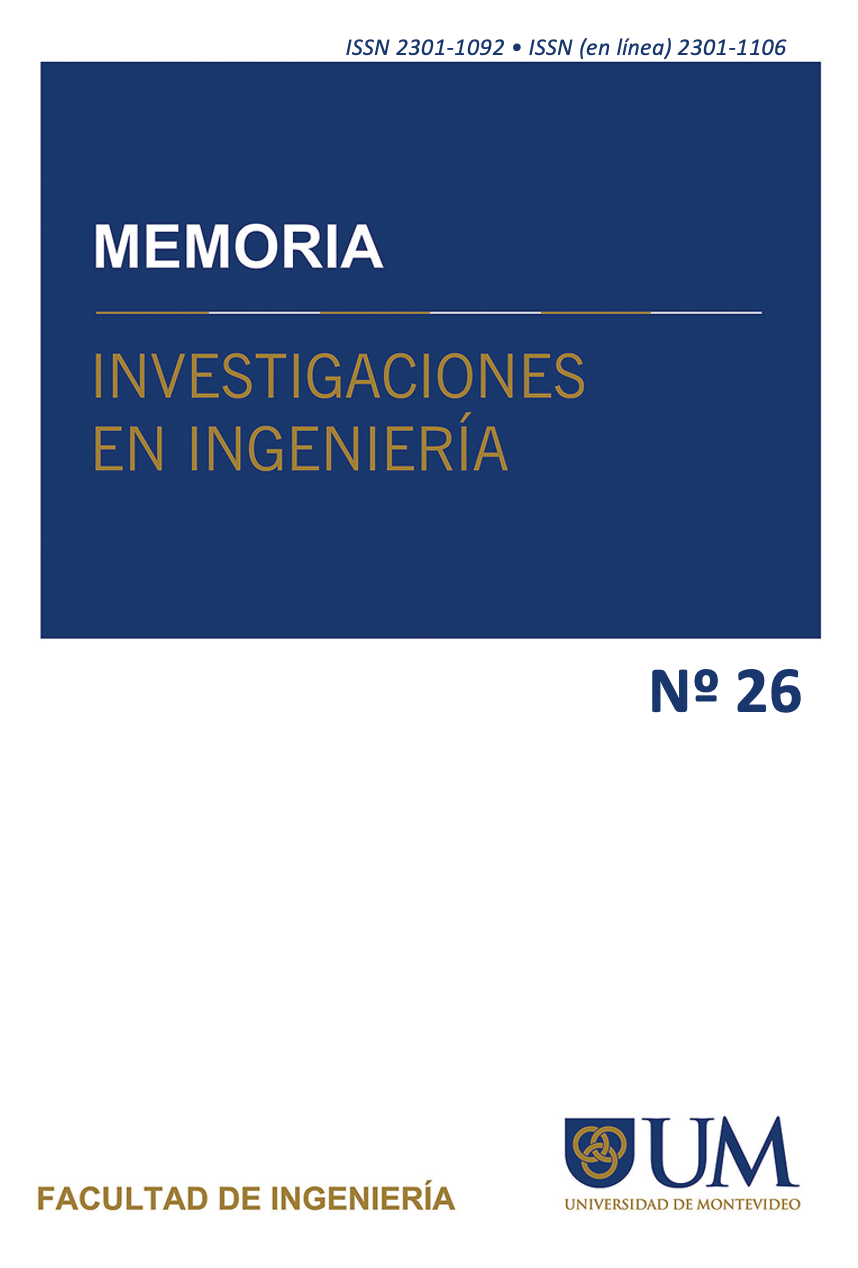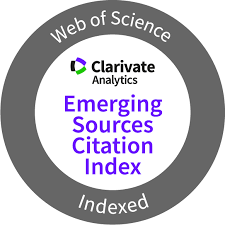Impacts of the energy transition in small off-grid communities
DOI:
https://doi.org/10.36561/ING.26.11Keywords:
Off-grid communities, Energy transition, Decentralized generation, Renewable technologies, ColombiaAbstract
The energy transition is a priority issue that concerns everyone, from big cities and their electricity-intensive sectors to small, remote, rural communities whose electricity supply is produced through decentralized generation systems that, in many cases, are partially or entirely supplied with fossil fuels. In Colombia, more than 90% of these rural communities generate their electricity using diesel plants, which makes it relevant to study the energy transition in these communities. Thus, the aim of this research is to show the impacts of the energy transition on these communities and how, in the long term, the transition can ensure access to reliable, affordable, sustainable, and modern electricity for all. To achieve this objective, it is necessary to use a mixed methodology that includes fieldwork and computer simulations. Through the fieldwork, multiple impacts of the transition to renewables were identified, for example, social impacts in terms of better conditions for education, environmental impacts such as the reduction of CO2 emissions and economic impacts such as the possibility of developing new productive activities. The results of the simulations show that, in the long term, the transition to 100% renewable decentralized generation systems is feasible and would guarantee the inhabitants of these small communities a sustainable, reliable and affordable electricity supply; however, to achieve this, several challenges must be overcome, one of the most relevant being the design and planning of microgrids whose expansion with renewables can be perpetuated over time. Finally, the findings of this research could be applied, with adaptations on a case-by-case basis, to small off-grid communities around the world.
Downloads
References
IRENA, “World Energy Transitions Outlook 2022: 1.5°C Pathway,” Abu Dhabi, 2022. Accessed: Jan. 31, 2023. [Online]. Available: https://www.irena.org/publications/2022/Mar/World-Energy-Transitions-Outlook-2022
United Nations, “THE 17 GOALS - Sustainable Development Goals,” 2016. https://sdgs.un.org/goals (accessed Feb. 02, 2023).
IRENA, “Off-grid renewable energy solutions to expand electricity access: An opportunity not to be missed,” 2019. [Online]. Available: https://www.irena.org/publications/2019/Jan/Off-grid-renewable-energy-solutions-to-expand-electricity-to-access-An-opportunity-not-to-be-missed
IEA, “Tracking SDG7: The Energy Progress Report, 2022,” Paris, 2022. [Online]. Available: https://www.iea.org/reports/tracking-sdg7-the-energy-progress-report-2022
E. Terrado, A. Cabraal, and I. Mukherjee, “Designing Sustainable Off-Grid Rural Electrification Projects: Principles and Practices,” Washington, D.C., 2008. doi: 10.1596/1813-9450-5193. DOI: https://doi.org/10.1596/1813-9450-5193
S. Mandelli, J. Barbieri, R. Mereu, and E. Colombo, “Off-grid systems for rural electrification in developing countries: Definitions, classification and a comprehensive literature review,” Renew. Sustain. Energy Rev., vol. 58, pp. 1621–1646, May 2016, doi: 10.1016/j.rser.2015.12.338. DOI: https://doi.org/10.1016/j.rser.2015.12.338
A. Haghighat Mamaghani, S. A. Avella Escandon, B. Najafi, A. Shirazi, and F. Rinaldi, “Techno-economic feasibility of photovoltaic, wind, diesel and hybrid electrification systems for off-grid rural electrification in Colombia,” Renew. Energy, vol. 97, pp. 293–305, 2016, doi: 10.1016/j.renene.2016.05.086. DOI: https://doi.org/10.1016/j.renene.2016.05.086
J. Tomei et al., “Forgotten spaces: How reliability, affordability and engagement shape the outcomes of last-mile electrification in Chocó, Colombia,” Energy Res. Soc. Sci., vol. 59, no. March 2019, 2020, doi: 10.1016/j.erss.2019.101302. DOI: https://doi.org/10.1016/j.erss.2019.101302
IEA, “SDG7: Data and Projections,” Paris, 2022. Accessed: Jan. 29, 2023. [Online]. Available: https://www.iea.org/reports/sdg7-data-and-projections
E. Garces, J. Tomei, C. J. Franco, and I. Dyner, “Lessons from last mile electrification in Colombia: Examining the policy framework and outcomes for sustainability,” Energy Res. Soc. Sci., vol. 79, Sep. 2021, doi: 10.1016/j.erss.2021.102156. DOI: https://doi.org/10.1016/j.erss.2021.102156
E. Garces, C. J. Franco, J. Tomei, and I. Dyner, “Sustainable electricity supply for small off-grid communities in Colombia : A system dynamics approach,” Energy Policy, vol. 172, 2023, doi: 10.1016/j.enpol.2022.113314. DOI: https://doi.org/10.1016/j.enpol.2022.113314
Congreso de Colombia, Ley 855 de 2003 - Por la cual se definen las Zonas No Interconectadas. Colombia: Sistema Único de Información Normativa, 2003. [Online]. Available: http://www.suin-juriscol.gov.co/viewDocument.asp?id=1669722
H. Louie, Off-Grid Electrical Systems in Developing Countries. Seattle: Springer International Publishing, 2018. doi: 10.1007/978-3-319-91890-7. DOI: https://doi.org/10.1007/978-3-319-91890-7
UPME, “Plan Indicativo de Expansión de Cobertura de Energía Eléctrica PIEC 2019-2023,” 2019. [Online]. Available: http://www.upme.gov.co/Siel/Siel/Portals/0/Piec/Informacion_Base_PIEC_Dic302019.pdf
IPSE, “Informe de gestión IPSE 2018,” Bogotá D.C. – Colombia, 2019. [Online]. Available: http://www.ipse.gov.co/transparencia-y-acceso-a-informacion-publica/informacion-de-interes2/noticias/551-informe-de-gestion-2018
IPSE, “Informe de Gestión IPSE 2019,” pp. 1–92, 2020, [Online]. Available: http://www.ipse.gov.co/ipse/informes-de-gestion/category/359-informe-de-gestion-2019#
D. F. Barnes and W. M. Floor, “Rural energy in developing countries: A Challenge for Economic Development,” Annu. Rev. Energy Environ., vol. 21, no. 1, pp. 497–530, 1996, doi: 10.1146/annurev.energy.21.1.497. DOI: https://doi.org/10.1146/annurev.energy.21.1.497
SSPD, “Zonas No Interconectadas - ZNI: Diagnóstico de la Prestación del Servicio de Energía Eléctrica 2017,” Bogotá, 2017. [Online]. Available: https://www.superservicios.gov.co/sites/default/archivos/Publicaciones/Publicaciones/2018/Dic/diag_zni_2018_7122018.pdf
MME, “Resolución 182138 de 2007 - Por la cual se expide el procedimiento para otorgar subsidios del sector eléctrico en las Zonas No Interconectadas.” Ministerio de Minas y Energía, pp. 1–4, 2007. [Online]. Available: http://energuaviare.com/sites/default/files/RESOLUCION_MME_182138_2007.pdf
E. Garces, “Alternativas de gestión para el suministro eléctrico sostenible en Zonas No Interconectadas,” Universidad Nacional de Colombia, 2021. [Online]. Available: https://repositorio.unal.edu.co/handle/unal/80271
ENAM, “ENAM Energía para el Amazonas S.A. E.S.P.” http://www.enam.com.co/
IRENA, “Electricity storage and renewables: Costs and markets to 2030,” Abu Dhabi, 2017. Accessed: Aug. 11, 2020. [Online]. Available: https://www.irena.org/costs/Electricity-Storage
R. Jimenez, “Barriers to electrification in Latin America: Income, location, and economic development,” Energy Strateg. Rev., vol. 15, pp. 9–18, 2017, doi: 10.1016/j.esr.2016.11.001. DOI: https://doi.org/10.1016/j.esr.2016.11.001
J. P. Viteri and F. Henao, “A human-centered approach to regional off-grid electrification budgeting: the Colombian case,” Sustain. Sci. Pract. Policy, vol. 19, no. 1, p., 2023, doi: 10.1080/15487733.2023.2217043. DOI: https://doi.org/10.1080/15487733.2023.2217043
REN21, “Renewables 2022 Global Status Report,” Paris, 2022. [Online]. Available: https://www.ren21.net/gsr-2022/
MME, Resolución 181272 de 2011 - Por la cual se ajusta el procedimiento para otorgar subsidios del sector eléctrico en las áreas de servicio exclusivo de las zonas no interconectadas continentales y se deroga la Resolución 180195 de 2011. Bogotá, 2011. [Online]. Available: http://legal.legis.com.co/document/Index?obra=legcol&document=legcol_aa41c3358d910134e0430a0101510134
F. Huneke, J. Henkel, J. A. Benavides González, and G. Erdmann, “Optimisation of hybrid off-grid energy systems by linear programming,” Energy. Sustain. Soc., vol. 2, no. 1, p. 7, 2012, doi: 10.1186/2192-0567-2-7. DOI: https://doi.org/10.1186/2192-0567-2-7
A. Vides-Prado et al., “Techno-economic feasibility analysis of photovoltaic systems in remote areas for indigenous communities in the Colombian Guajira,” Renew. Sustain. Energy Rev., vol. 82, no. September 2015, pp. 4245–4255, Feb. 2018, doi: 10.1016/j.rser.2017.05.101. DOI: https://doi.org/10.1016/j.rser.2017.05.101
CREG, Resolución CREG-067 de 2009. Colombia, 2009. [Online]. Available: http://apolo.creg.gov.co/Publicac.nsf/2b8fb06f012cc9c245256b7b00789b0c/618b3f69976a25ea0525785a007a715c/$FILE/Creg067-2009.pdf
CREG, Documento CREG-057 de 2009. Colombia, 2009. [Online]. Available: http://apolo.creg.gov.co/Publicac.nsf/2b8fb06f012cc9c245256b7b00789b0c/618b3f69976a25ea0525785a007a715c/$FILE/D-057-09 ÁREAS DE SERVICIO EXCLUSIVO ZNI VAUPÉS.pdf
Published
How to Cite
Issue
Section
License
Copyright (c) 2024 Estéfany Garcés, Carlos J. Franco

This work is licensed under a Creative Commons Attribution 4.0 International License.






















